Filter by
SubjectRequired
LanguageRequired
The language used throughout the course, in both instruction and assessments.
Learning ProductRequired
LevelRequired
DurationRequired
SkillsRequired
SubtitlesRequired
EducatorRequired
Explore the Biomedical Imaging Course Catalog
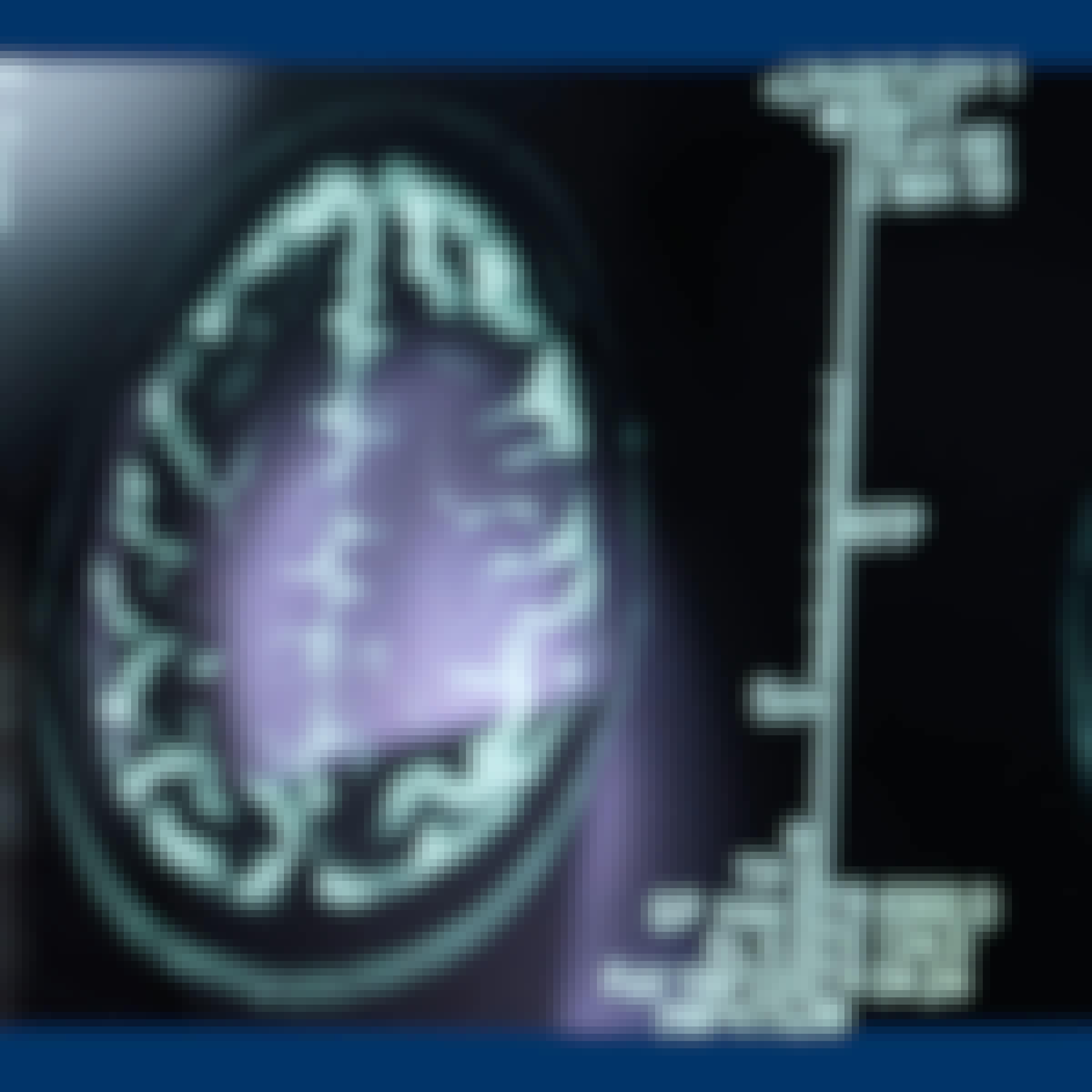
Yale University
Skills you'll gain: Diagnostic Radiology, Medical Imaging, Radiography, X-Ray Computed Tomography, Medical Ultrasonography, Magnetic Resonance Imaging, Diagnostic Tests, Neurology, Image Analysis, Anatomy
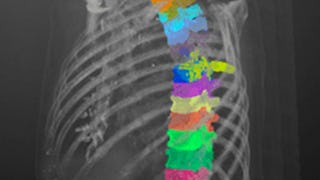 Status: Preview
Status: PreviewMathWorks
Skills you'll gain: Medical Imaging, Magnetic Resonance Imaging, Image Analysis, X-Ray Computed Tomography, Data Import/Export, Biomedical Engineering, Matlab, Computer Vision, Deep Learning, Software Visualization, Machine Learning
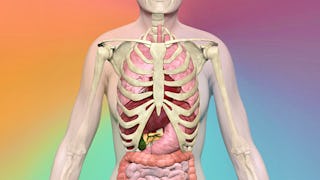 Status: Preview
Status: PreviewUniversity of Glasgow
Skills you'll gain: 3D Modeling, 3D Assets, Scientific Visualization, Biomedical Engineering, Medical Terminology, Augmented and Virtual Reality (AR/VR), Anatomy, Animations, Image Analysis, Physiology, Biology, Medical Imaging
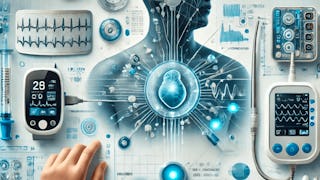 Status: Free Trial
Status: Free TrialIndian Institute of Science
Skills you'll gain: Engineering Documentation, Biomedical Technology, Biomedical Engineering, Medical Devices, Medical Equipment and Technology, Electronics, Electronics Engineering, Vital Signs, Technical Documentation, Engineering Plans And Specifications, Chemistry, Technical Communication, Semiconductors, ISO 13485 Standard, Materials science, Electronic Systems, Chemical and Biomedical Engineering, Internet Of Things, Analytical Chemistry, Electronic Components
 Status: Free Trial
Status: Free TrialJohns Hopkins University
Skills you'll gain: Magnetic Resonance Imaging, Neurology, Medical Imaging, Diagnostic Radiology, Anatomy, Image Analysis, Data Analysis, X-Ray Computed Tomography, Correlation Analysis, Data Manipulation, Radiology, Analytical Skills, Experimentation, Research Design, Statistical Analysis, Biomedical Technology, Advanced Analytics, Network Analysis, R Programming, Statistics
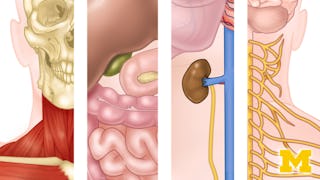 Status: Free Trial
Status: Free TrialUniversity of Michigan
Skills you'll gain: Human Musculoskeletal System, Anatomy, Endocrinology, Pulmonology, Cardiology, Respiration, Gynecology, Hematology, Obstetrics And Gynecology, Orthopedics, Neurology, Urology, Nephrology, Kinesiology, Physiology, Medical Imaging, Sports Medicine, Biology, Medical Terminology, Cell Biology
What brings you to Coursera today?
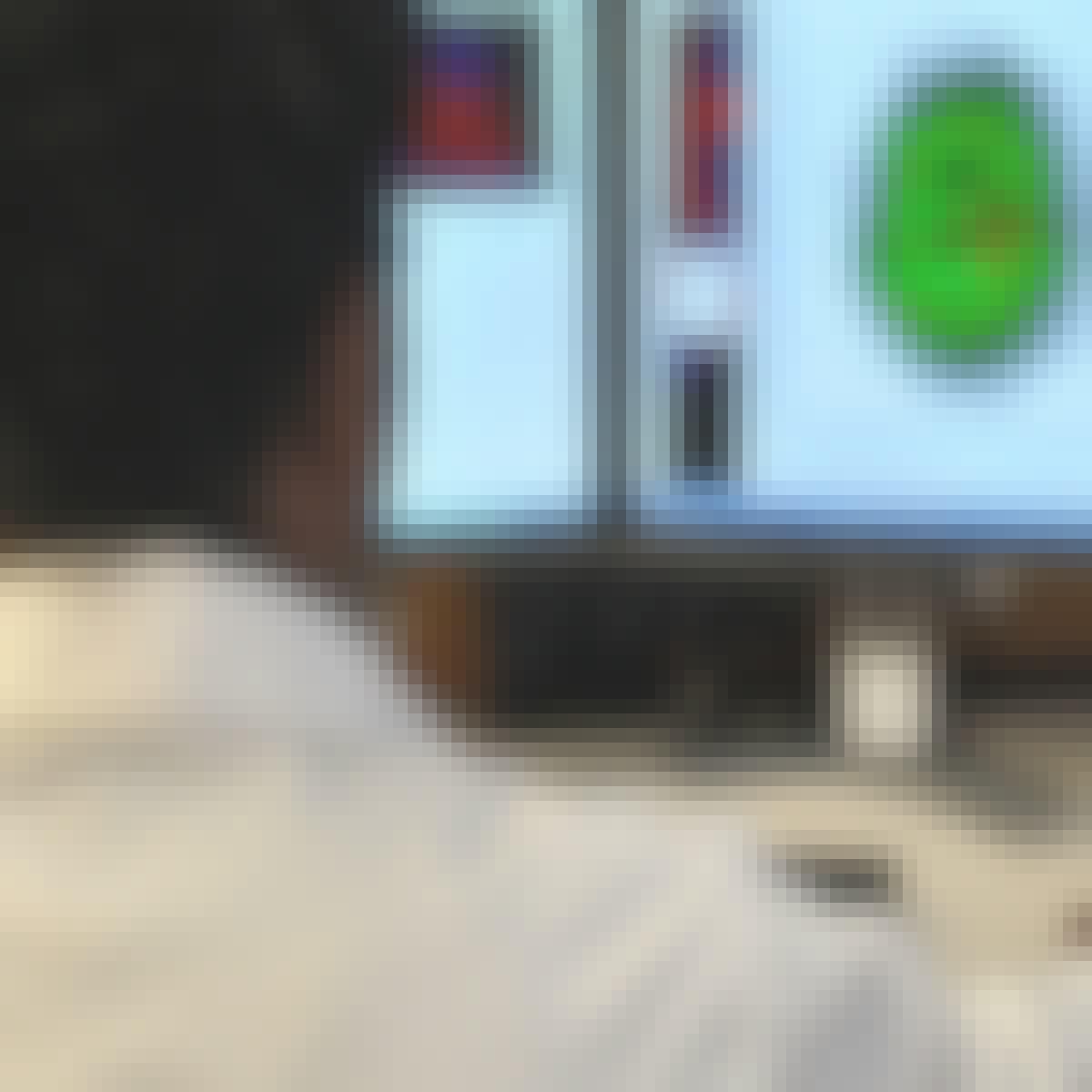 Status: Free Trial
Status: Free TrialIcahn School of Medicine at Mount Sinai
Skills you'll gain: Matlab, Bioinformatics, Quantitative Research, Unsupervised Learning, Data Synthesis, Research, Mathematical Modeling, Molecular Biology, Pharmacology, Science and Research, Cell Biology, Biotechnology, Biomedical Technology, Scientific Methods, Physiology, Differential Equations, Computational Logic, Biochemistry, Network Analysis, Biology
 Status: Free Trial
Status: Free TrialJohns Hopkins University
Skills you'll gain: Oncology, Medical Imaging, Patient Education And Counseling, Diagnostic Radiology, Radiation Therapy, Molecular Biology, Diagnostic Tests, Clinical Trials, Pain Management, Preventative Care, Treatment Planning, Urology, Patient Treatment, Immunology, Surgery, Epidemiology, Cell Biology, Care Management, Biology, Pathology
 Status: Free Trial
Status: Free TrialSkills you'll gain: Image Analysis, Image Quality, Matlab, Computer Vision, Automation, Anomaly Detection, Spatial Data Analysis, Data Processing, Engineering Practices, Water Sustainability, Medical Imaging, Spatial Analysis, Data Manipulation, Exploratory Data Analysis, Histogram, Quantitative Research, Data Analysis Software, Analysis, Data Import/Export, Algorithms
 Status: Preview
Status: PreviewKorea Advanced Institute of Science and Technology(KAIST)
Skills you'll gain: Magnetic Resonance Imaging, Medical Imaging, Image Quality, Patient Positioning, Medical Equipment and Technology
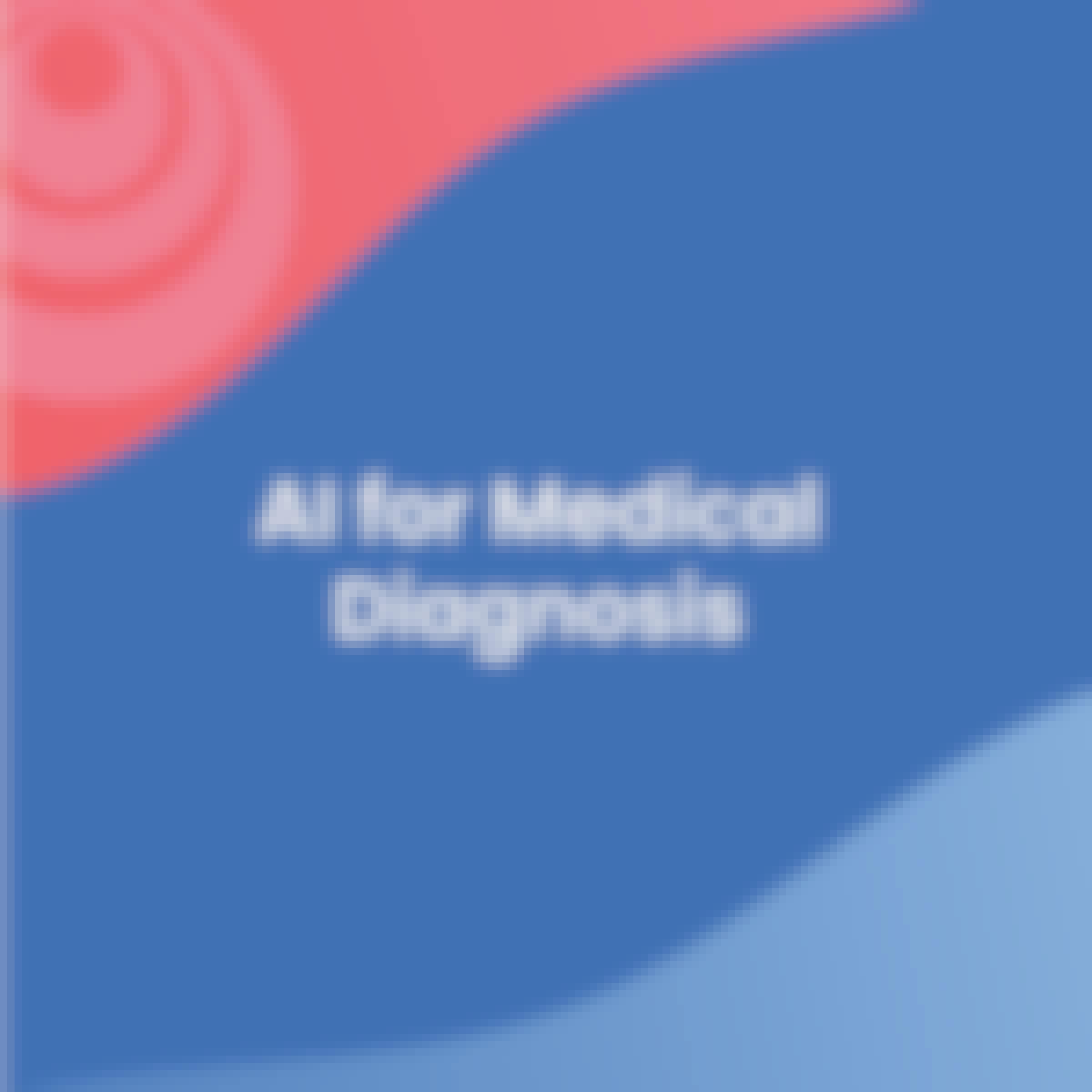 Status: Free Trial
Status: Free TrialDeepLearning.AI
Skills you'll gain: Image Analysis, Diagnostic Radiology, Predictive Modeling, Data Processing, Artificial Intelligence, Tensorflow, Applied Machine Learning, Medical Imaging, Keras (Neural Network Library), Computer Vision, Deep Learning, Natural Language Processing, Machine Learning, Artificial Neural Networks, Magnetic Resonance Imaging, Probability & Statistics, X-Ray Computed Tomography
 Status: Preview
Status: PreviewDuke University
Skills you'll gain: Neurology, Physiology, Anatomy, Cell Biology, Psychology, Pathology, Molecular Biology
Biomedical Imaging learners also search
In summary, here are 10 of our most popular biomedical imaging courses
- Visualizing the Living Body: Diagnostic Imaging: Yale University
- Medical Image Processing: MathWorks
- Biomedical Visualisation: University of Glasgow
- Sensor Technologies for Biomedical Applications: Indian Institute of Science
- Neuroscience and Neuroimaging: Johns Hopkins University
- Anatomy: University of Michigan
- Systems Biology and Biotechnology: Icahn School of Medicine at Mount Sinai
- Cancer Biology: Johns Hopkins University
- Image Processing for Engineering and Science: MathWorks
- MRI Fundamentals: Korea Advanced Institute of Science and Technology(KAIST)










